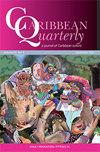Resisting Stigma in US Higher Education
Q3 Arts and Humanities
引用次数: 0
Abstract
SOCIAL PSYCHOLOGICAL PROCESSES THAT INVOLVE STEREOTYPING, PREJUDICE, stigma and discrimination are common in interpersonal and intergroup activities. In most modern societies, these processes are enacted against the background of a stated sociopolitical agenda that values and promotes diversity. And yet, their effects persist in social interactions in high-stake contexts such as in migration, and fuel negative judgements made about persons categorised by stigmatised social characteristics, such as gender, religion, social class, race, ethnicity, sexuality, and nation of origin. Stigma “occurs when elements of labeling, stereotyping, cognitive separation into categories of ‘us’ and ‘them’, status loss, and discrimination co-occur in a power situation that allows these components to unfold”.1 Highlighting the power situation underscores varying stakes for those being labelled. If nothing is at stake, then the target may not care about being regarded negatively, but in situations such as workplaces, business transactions, in education and in healthcare institutions, stigma can be devastating. The hazard of bearing stigma may be tangible (for example, being denied a mortgage), or social (for example, loss of status), or it may be psychological (for example, a threat to identity or well-being). The meanings, processes and consequences of social branding also vary across time and place. A critical social psychology imperative is, therefore, to unearth how, why, for whom, and with what effects “the material, historical and institutional dimensions of stigma are inextricably interconnected”.2 Research attention to the risks associated with social disparities is undeniably important. However, we need to be concerned with the full range of subjective responses to the marginal situation.3 Caribbean women who live in the United States and are enrolled in colleges are non-traditional college students and members of several historically marginalised social groups: foreign-born, women, and largely of African ancestry. Hence, the social categories to which they belong – race, class, nationality, migration抵制美国高等教育的污名化
涉及刻板印象、偏见、污名化和歧视的社会心理过程在人际和群体间活动中很常见。在大多数现代社会中,这些进程是在重视和促进多样性的既定社会政治议程的背景下制定的。然而,它们的影响在移民等高风险环境中的社会互动中持续存在,并助长了对按性别、宗教、社会阶层、种族、民族、性取向和原籍国等污名化社会特征分类的人的负面判断。“当标签、刻板印象、认知分离为‘我们’和‘他们’类别、地位丧失和歧视等因素同时发生在允许这些组成部分展开的权力情境中时,就会产生污名”。1突出权力情境突显了被标签者的不同利害关系。如果没有任何利害关系,那么目标可能不在乎被负面看待,但在工作场所、商业交易、教育和医疗机构等情况下,污名化可能是毁灭性的。蒙受耻辱的危险可能是有形的(例如,被拒绝抵押贷款),也可能是社会的(例如失去身份),也可以是心理的(例如对身份或幸福的威胁)。社会品牌的含义、过程和后果也因时间和地点而异。因此,关键的社会心理学当务之急是挖掘“污名的物质、历史和制度层面是如何、为什么、对谁以及产生什么影响的”。2研究关注与社会差异相关的风险无疑是重要的。然而,我们需要关注对边缘情况的各种主观反应。3居住在美国并在大学就读的加勒比女性是非传统大学生,也是几个历史上被边缘化的社会群体的成员:外国出生的女性,主要是非洲血统。因此,他们所属的社会类别——种族、阶级、国籍、移民
本文章由计算机程序翻译,如有差异,请以英文原文为准。
求助全文
约1分钟内获得全文
求助全文

 求助内容:
求助内容: 应助结果提醒方式:
应助结果提醒方式:


